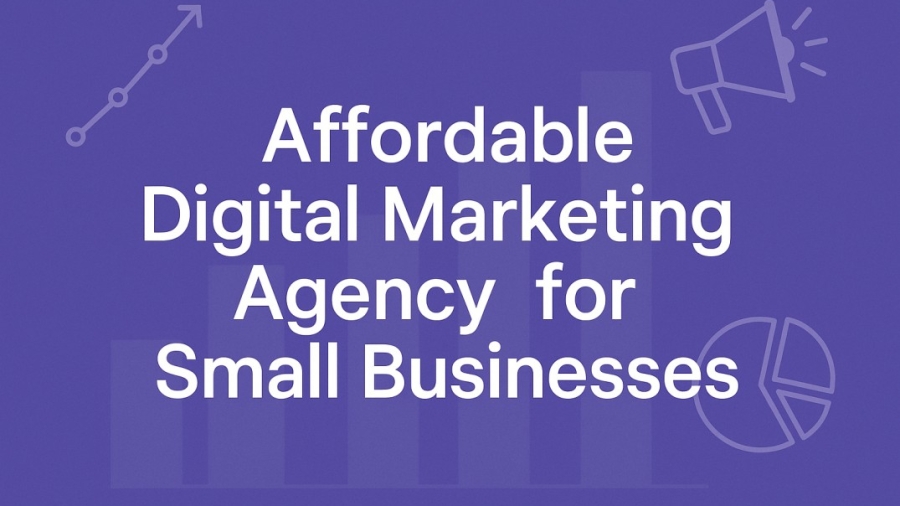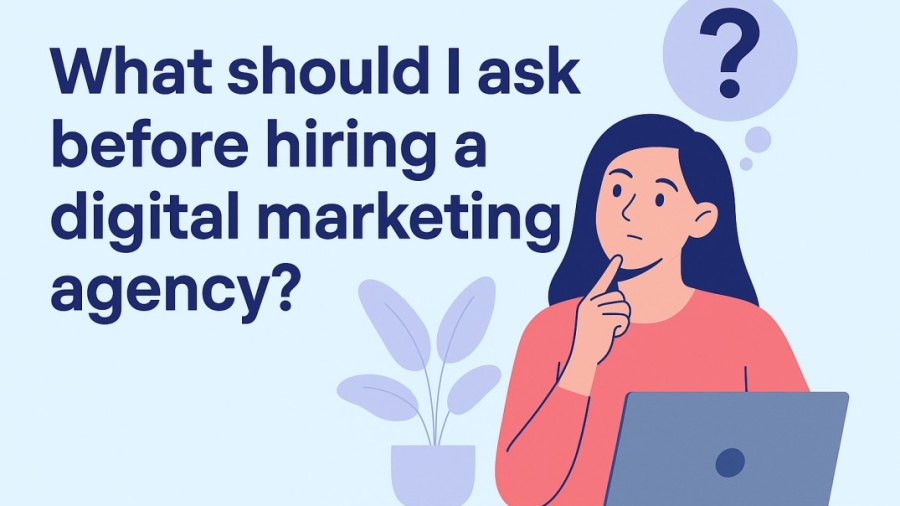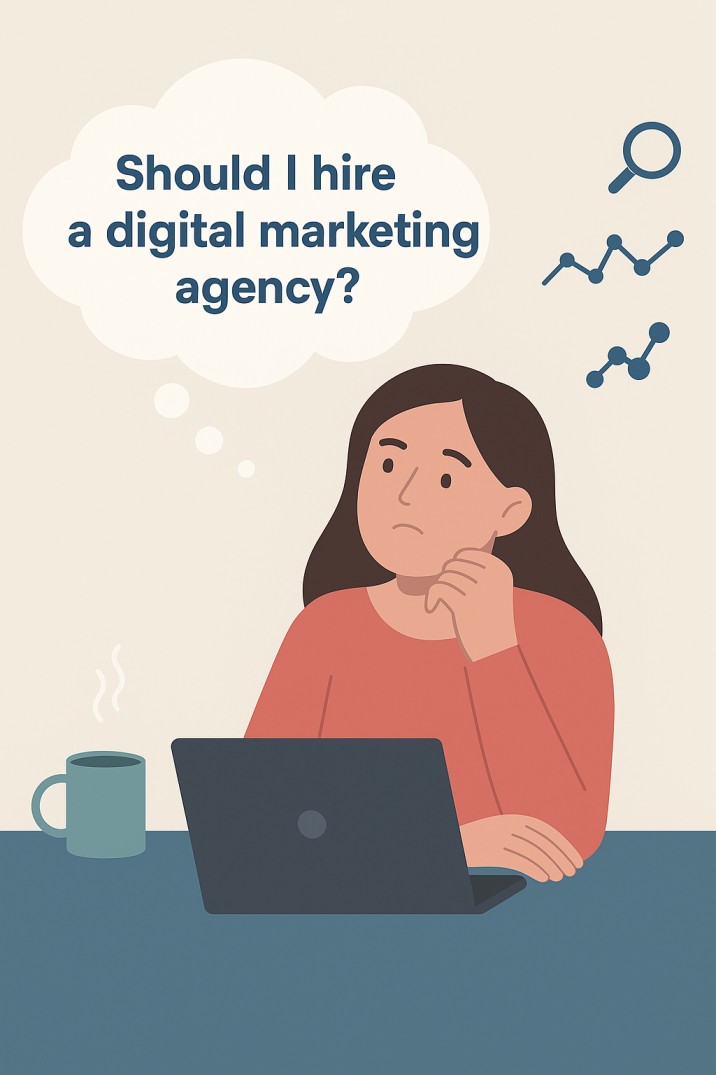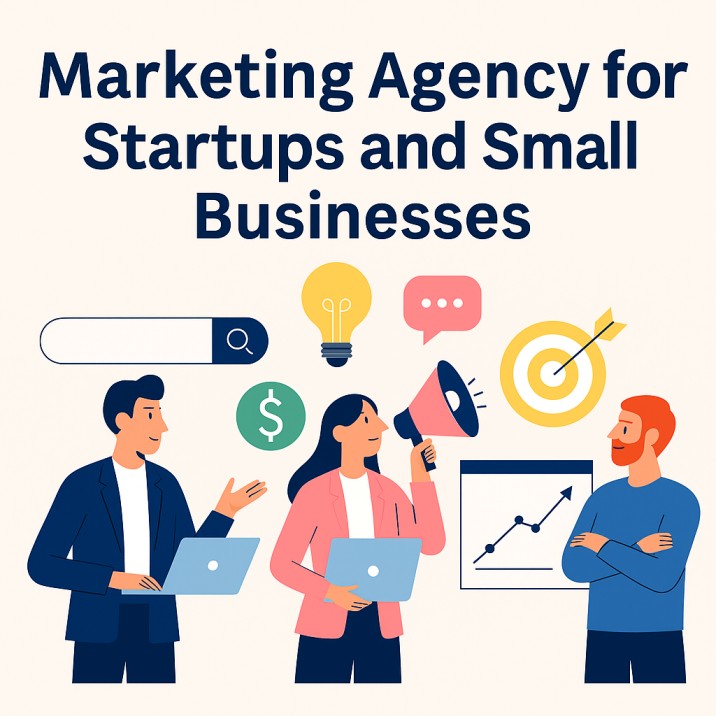There’s this moment a lot of small business owners face.
You’re sitting there, coffee going cold, looking at your website traffic and… it’s just not moving. Social posts are going out, but no one’s biting. You start wondering, “Maybe I need a marketing agency.”
Then comes the kicker: Can I even afford one?
If you’ve ever thought about hiring an affordable digital marketing agency for small businesses, you’ve probably gone down a rabbit hole of endless options — all promising “guaranteed growth” and “game-changing results.” It’s exhausting. And a little suspicious, if we’re being honest.
Let’s break it down, piece by piece. Not in a shiny, perfect, too-polished way, but in a way that actually helps you figure out what’s right for you.
Why affordability matters — but isn’t everything
When people hear “affordable,” they often think “cheap.” But affordable isn’t about getting the lowest price. It’s about paying a fair amount for real value.
You could spend $500 a month with a so-called agency and get nothing but generic posts that could belong to any business. Or you could spend the same $500 and get targeted ads, SEO improvements, and a content plan built for your audience. Same budget, completely different results.
Affordability matters because, as a small business, you don’t have endless cash flow. Every dollar needs to earn its keep. But focusing only on price — without considering skill, strategy, and fit — is the fastest way to waste money.
Questions worth asking before you sign anything
Before you hand over a single cent, you should know the right questions to ask. And not just the polite ones.
- Have you worked with small businesses like mine?
Because an agency that’s only used to working with massive corporate budgets might not know how to make a $1,000 budget stretch. - What’s included in your affordable package?
“Affordable” is meaningless unless you know what’s inside. Are they handling social media, SEO, email marketing, or just one piece? - How do you measure results?
If they talk in vague terms like “brand awareness” without tying it to numbers — leads, sales, clicks — that’s a red flag. - What happens if things don’t work?
No one wants to think about this, but it’s worth knowing whether they adapt quickly or just keep running the same failed campaigns. - How do you communicate?
Weekly reports? Monthly calls? Or do you have to chase them for updates?
The factors you can’t skip over
Choosing an affordable agency isn’t just about what they say they’ll do. It’s about how they work, how they think, and whether they align with what your business actually needs.
Here’s what to look for:
- Clarity in pricing
You shouldn’t have to decode a pricing table like it’s a secret government file. - Real case studies
Not just pretty graphics, but before-and-after data with actual results. - Flexibility
Your needs may change. An agency that can adjust with you will save a lot of stress. - Industry understanding
They don’t need to be an expert in your exact niche, but they should be able to grasp it quickly and speak your audience’s language. - A balanced approach
Some agencies obsess over ads, others push only organic content. The best ones use a mix, based on your goals and budget.
Challenges small businesses face when choosing an agency
Even with all the right questions and research, small businesses still hit roadblocks.
- The too-good-to-be-true pitch
If it sounds magical and effortless, it probably isn’t. - Hidden costs
“Oh, you want analytics? That’s extra.” These things add up fast. - Poor fit
Even a talented agency might be a bad match if they don’t get your tone or brand personality. - Slow results
Marketing takes time. But if you’re not seeing any signs of movement after months, something’s off.
How to actually make the decision
Let’s be practical. This is how I’d do it if I were starting fresh:
- Set your budget first
Know your ceiling so you don’t get seduced by pitches way out of reach. - Decide your priority
Is it leads? Sales? Brand recognition? Your top goal will influence the type of work you need. - Shortlist 3–4 agencies
Any more than that and it becomes overwhelming. - Ask for tailored proposals
See how they’d spend your budget specifically — not just a generic plan. - Pay attention to their communication style
If they’re slow to reply during the sales process, imagine what it’ll be like later. - Start with a smaller project
A month-long trial or single campaign can show you what they’re capable of. - Evaluate results honestly
Don’t be swayed by fancy reports. Look for outcomes that match your goals.
Common misconceptions
I’ve heard people say things like:
- “If it’s affordable, it can’t be good.” Not true. Some agencies keep costs low by working lean, using tech well, and focusing on what matters.
- “Big agencies are always better.” Also false. Big agencies can mean more overhead, more clients, and less personal attention.
- “I can just copy what other businesses do.” The reality is, marketing is context-specific. What works for one brand may flop for another.
FAQs
Q: How much should I expect to spend?
Most small businesses do well with $500–$2,000 per month, but it depends on your industry and goals.
Q: Should I hire a freelancer instead?
If you need one specific skill (like copywriting), maybe. But agencies give you access to a team of skills under one roof.
Q: How soon will I see results?
Paid ads can work in weeks. SEO can take months. A good agency will set realistic expectations.
Q: What’s the biggest mistake small businesses make?
Picking the cheapest option without checking the strategy or track record.
Q: Can I leave if I’m not happy?
Look for flexible contracts. Avoid agencies that lock you into long, rigid agreements.
Final thoughts — the “this is the way” checklist
If I had to boil this down into one quick, decision-making guide, it’d look like this:
- Know your budget.
- Be clear on your goals.
- Shortlist only a few serious contenders.
- Demand clarity in proposals.
- Test before committing long-term.
- Evaluate on both results and working relationship.
And one more thing — trust your gut. Numbers matter, but if something feels off in how they communicate or present themselves, listen to that.






